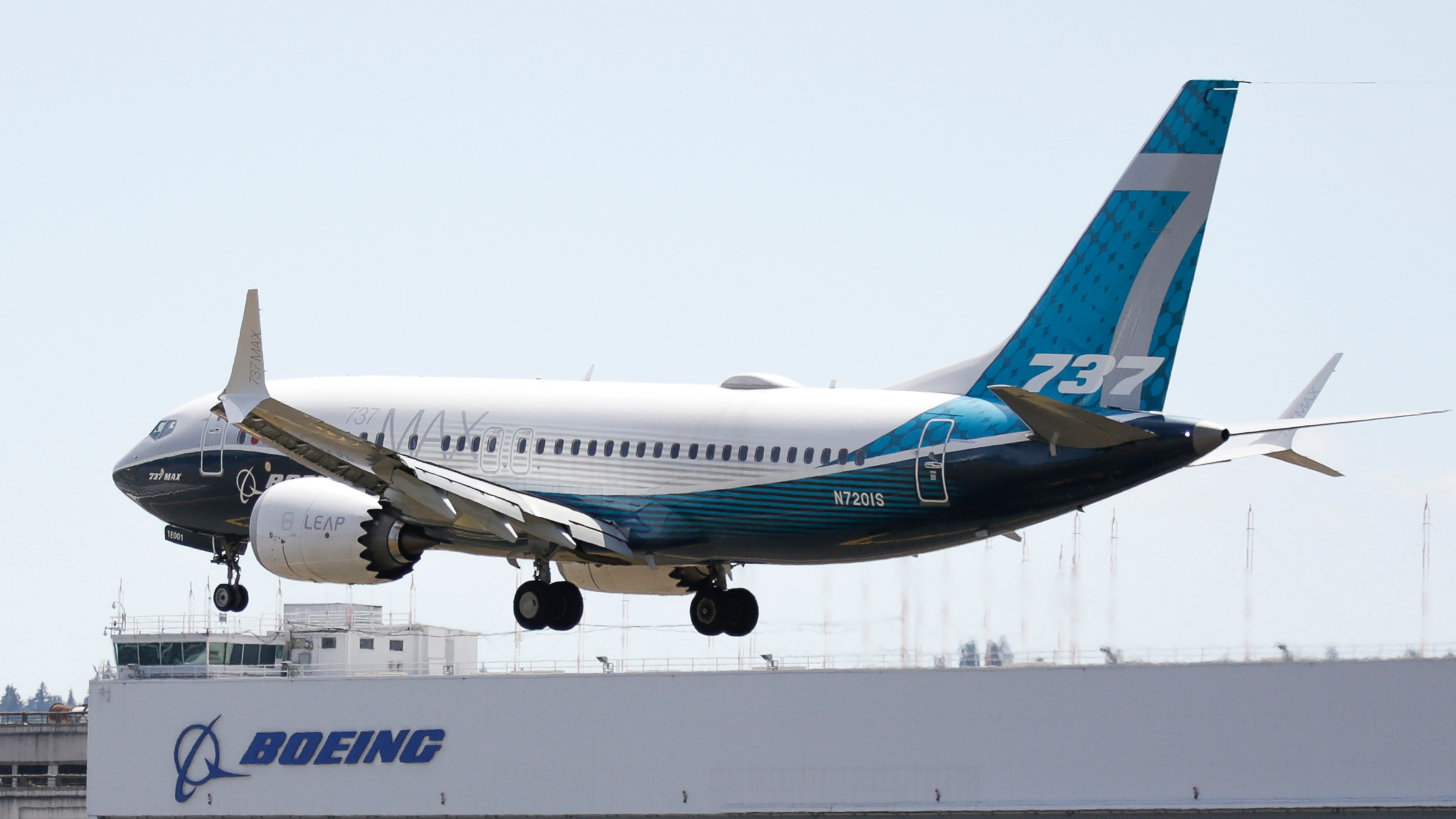Boeing's 'Culture Of Concealment' Led To 737 Max Crashes, Congressional Report Says
The deadly crashes of two Boeing 737 Max airliners can be chalked up to a company keeping everyone in the dark and giving Boeing employees the authority of federal regulators who could then be pressured by their company. That's according to a new report released Wednesday that could lead to big changes in how the Federal Aviation Administration works with the entities it is meant to regulate.
The Boeing 737 Max was the company's best-selling jet ever until it quickly became its biggest liability, setting the company back billions in fines and canceled orders after the 2018 and 2019 crashes of the 737 Max killed 364 people. The planes have been grounded since March 2019, though Boeing is inching towards recertification of the 737 Max now. The conclusions reached in the 245-page report issued by the House Transportation and Infrastructure Committee are fairly chilling. From Time:
The conclusions were drawn by the majority staff under committee Chairman Peter DeFazio. The report cites five main reasons for the crashes:
Pressures to update the 737's design swiftly and inexpensively
Faulty assumptions about the design and performance of pilots
What the report called a "culture of concealment" by Boeing
Inherent conflicts of interest in the system that deputizes Boeing employees to act on behalf of the government
The company's sway over top FAA managers
DeFazio said he found it "mind boggling" that Boeing and FAA officials concluded, according to the report, that the plane's design had complied with regulations in spite of the crashes.
"The problem is it was complaint and not safe — and people died," he said. "Obviously, the system is inadequate."
DeFazio said he found it "mind boggling" that Boeing and FAA officials concluded, according to the report, that the plane's design had complied with regulations in spite of the crashes.
The 737 Max problem originated in a new flight-control system known as the Maneuvering Characteristics Augmentation System, or MCAS. The MCAS software, relying on flawed data from faulty sensors, caused the planes to pitch the nose down when not needed. The system was confusing to override: In the early days of testing the system back in 2012, it took a Boeing test pilot 10 seconds to override the MCAS, a condition that pilot described as "catastrophic." But for some reason, Boeing and FAA made the assumption that pilots would be able to respond to a faulty MCAS reading in four seconds.
Boeing knew there were problems with the plane and still called Indonesia pilots "idiots" for requesting additional training. In documents turned over to the FAA and congressional committees, employees of Boeing called the 737 Max something "designed by clowns, who in turn are supervised by monkeys."
On October 29, 2018 Lion Air flight 610 crashed, killing 189. It wasn't until the following March, after Ethiopian Airlines flight 302 went down killing 157, that various airlines and countries started grounding the plane or denying it access through their airspace. The FAA pushed back on grounding the planes until March 13, when it reversed course after President Trump stopped the 737 Max from flying. The plane has been grounded since then but could be recertified to fly sometime this month, according to CNET. Boeing seems to have also quietly shrugged off the 737 Max name, with the company referring to it as the 737-8 in an August press release.
One of the most glaring problems with how the 737 Max made it onto runways is the longtime practice of deputizing Boeing employees to do the work of FAA regulators. The report found that many in the FAA weren't even aware that it was Boeing employees who were doing the final safety sign-offs on the jets. It's a loophole that carmakers also take full advantage of, as the auto industry self-certifies its vehicles' safety to the federal government. Both the House and Senate are looking to close that loophole, at least for aircraft manufacturers, with bipartisan legislation.
Again from Time:
A key finding involves a long-standing practice — which was expanded by Congress several times — to deputize Boeing employees to act in behalf of FAA while reviewing aircraft designs.
According to a 2016 survey obtained by the committee, 39% of Boeing's Authorized Representatives, senior engineers who conducted reviews for FAA, at times perceived "undue pressure" on them from management.
One such senior engineer knew that Boeing was delivering Maxes to customers without a required alert in 2017 and 2018, yet didn't notify FAA, the report said. The lack of such an alert was cited by Indonesian investigators as a factor in the Lion Air crash.
Both House and Senate legislation is expected to seek reforms of the so-called delegation system, which the report said is riddled with "inherent conflicts of interest."
While Boeing's CEO was fired over the deadly, poorly designed planes, he still received a reduced benefits package worth millions rather than what he probably deserved: an arrest warrant for the negligent homicide of 364 people.
